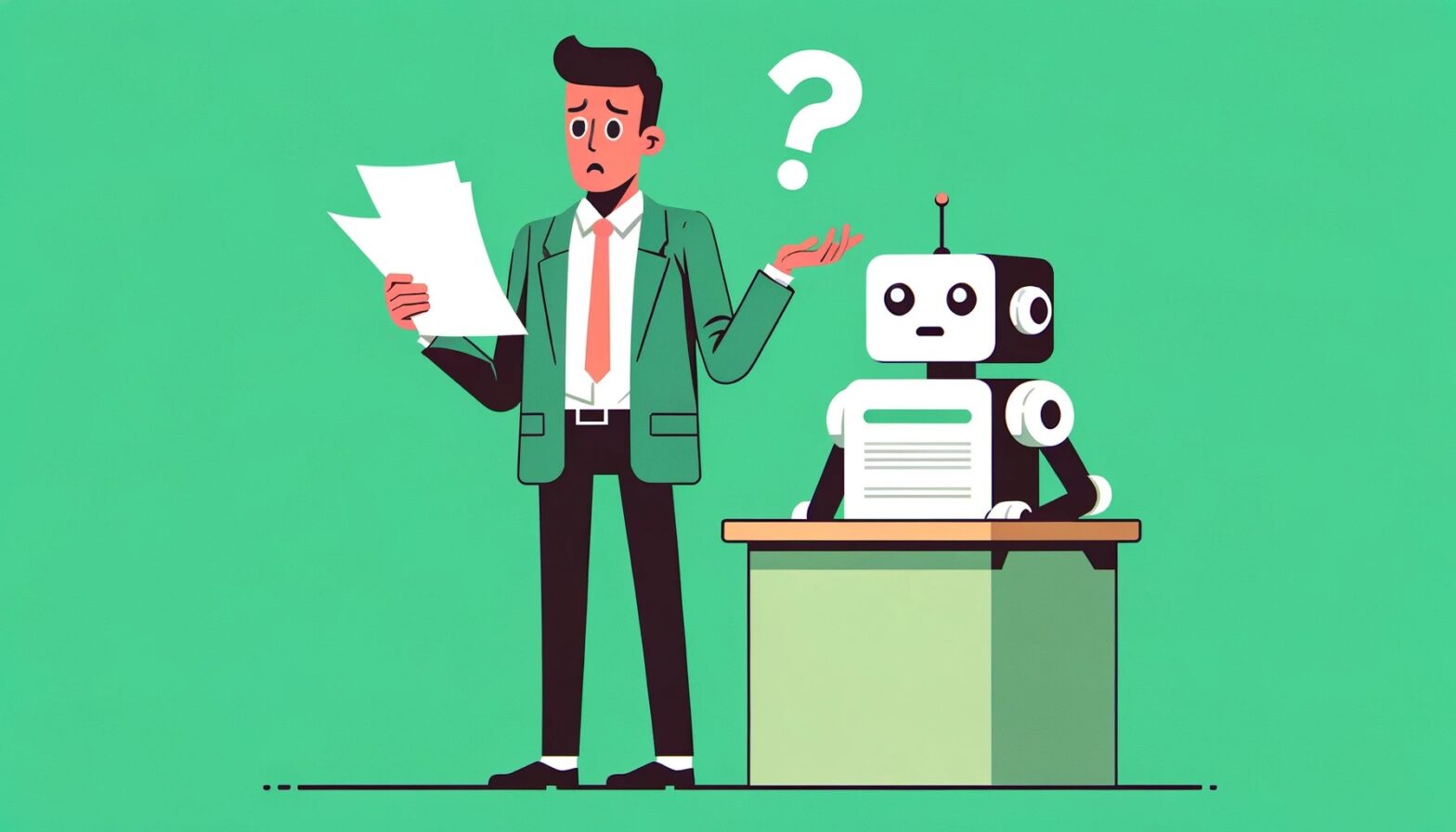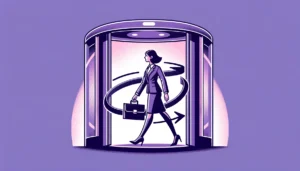Does AI really increase job satisfaction?
- 4 Min Read
A new survey reveals the majority of workers believe AI has increased job satisfaction, challenging fears that artificial intelligence will diminish workplace happiness through layoffs and narrow, robotic roles.
- Author: HRD Connect
- Date published: Feb 14, 2024
- Categories

Artificial intelligence (AI) is transforming the workplace, but is it actually making workers happier in their jobs? Many have speculated that AI and automation will lead to job losses, which could understandably lower job satisfaction.
However, a new survey challenges the notion that AI hurts job happiness.
Tech.co’s Impact of Technology on the Workplace survey of 1047 US business leaders found that 59% of senior leadership who use AI within their own role, say it’s improved their job satisfaction. Another 30% of respondents say AI has had a “strong” or “significant” impact on their work processes.
“While AI will likely cause major economic change in the future, at this moment in time, its capacity to both support the work of millions of people across the globe makes it a significant net benefit for most people in most workplaces,” says Tech.co’s Aaron Drapkin comments.
“Freely available AI tools like ChatGPT are helping with a huge range of workplace tasks – and most importantly, many of the ones we find repetitive, boring, and time-consuming. We’ve never had tools this capable at our fingertips before, and the data suggests it’s making a tangible difference to the lives of people using them.”
While a high salary can certainly make a role more enticing, younger generations are becoming increasingly interested in roles that provide more fulfilling job satisfaction and a greater work life balance.
The recent Gen Z TikTok trend #lazygirljobs seeks to challenge the “always-on” culture that permeates US workplaces by encouraging younger workers to opt for low-stress jobs with healthier work-life boundaries.
The rise of #lazygirljobs and other workplace trends like quiet quitting, bare minimum Mondays, and resenteeism has emerged in response to the US’s rapidly growing burnout problem – a type of stress that can impact on a worker’s physical health, mental well-being, and sense of identity.
Tech.co’s research also found that Millennials and Gen X senior leadership are more open to a 4-day working week than Baby Boomers. But organizations that are already harnessing AI seem to be most open to this flexible work structure, as 93% of businesses using AI were found to be more open to a 4-day work week.
While the range of tasks that businesses find AI most useful for can be broad, according to Tech.co’s research, data analysis and writing tasks are the most popular uses for AI in the workplace. 32% of companies reported using AI for data analysis tasks, while 26% of companies used AI for general writing tasks, from emails to reports.
| Data analytics | 32% |
| Writing tasks | 26% |
| Scheduling and calendar management | 21% |
| Automated data entry | 20% |
| Quality control | 20% |
| Cybersecurity | 20% |
| Running customer support chatbots | 19% |
| Design tasks | 19% |
| Document classification and management | 17% |
| Inventory management | 16% |
“The ease at which these tools can be called upon to complete workplace tasks is key to their continued, positive impact. ChatGPT and co. wouldn’t be impacting of satisfaction in quite the same way if they were more complicated to configure, cost lots of money, or became so intelligent that they rendered workers redundant,” says Aaron Drapkin.
“Right now, we’re living in a proverbial sweet spot. The tools are free, easy to use and not powerful enough to work independently and replace the humans using them. This is great – but none of these things are absolutes. AI clearly has the capacity to completely transform how we work – but ensuring this transformation continues to be gradual, manageable and beneficial will be no easy task. “
The common narrative tend goes like this: AI takes over routine and repetitive tasks, allowing workers to focus on more meaningful work. In theory, this should increase engagement, creativity, and satisfaction.
However, the reality is more nuanced. As machines edge closer to human abilities, some worry they will not just transform jobs but eliminate them. Understanding the human impact of AI is critical as more organizations race to integrate this emerging technology.
There are reasonable arguments on both sides. AI supports workers by handling dull, difficult data tasks, but could it also deprive them of varied responsibilities that keep work interesting? Can all displaced roles be re-trained for the new AI-powered landscape? The debate continues, but fresh data reveals AI may boost careers, not just end them.








